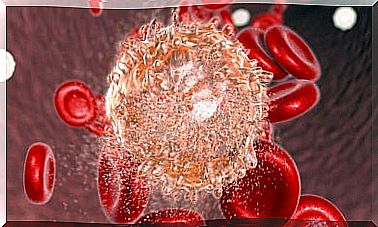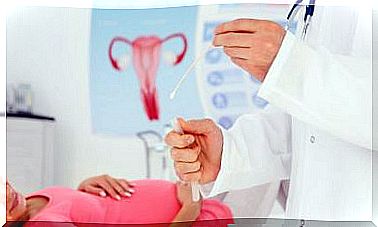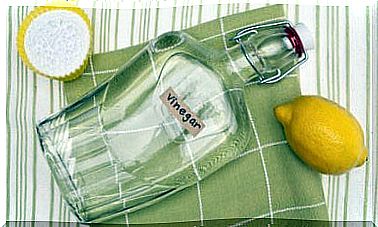How To Deal With Fever In Children
Although fever in children is a matter of concern for parents, it is actually a defense mechanism that allows them to face infectious processes caused by viruses and bacteria.
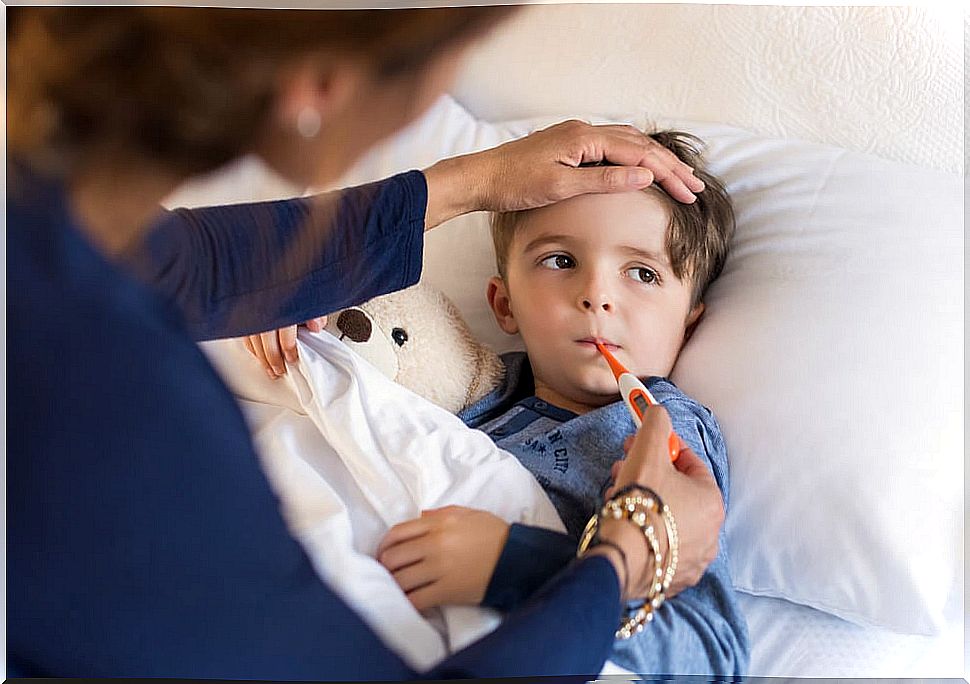
Worry is inevitable when fever occurs in children. Although it is a symptom that can appear due to common conditions, it is usually one of the main reasons for consultations in pediatric emergencies. How should you act in these cases?
As a father or mother, it is very important to learn to attend to this manifestation, since it is not always necessary to go to the doctor. In fact, even if it has to do with an infection, most of the time it can be managed at home with some basic care.
Fever is not a disease in itself, but a defense mechanism that activates the body against virus attack. Therefore, unless it is too high, it does not require medical intervention. Next, we tell you what guidelines to follow to control it.
Why does fever occur in children?
There is talk of fever when the body temperature is above 38 ºC. In the case of children, it is a symptom that is caused by viral or bacterial infections. Although alarming, it actually allows the body to act positively against pathogens. And this is evidenced by this information from the American Academy of Pediatrics .
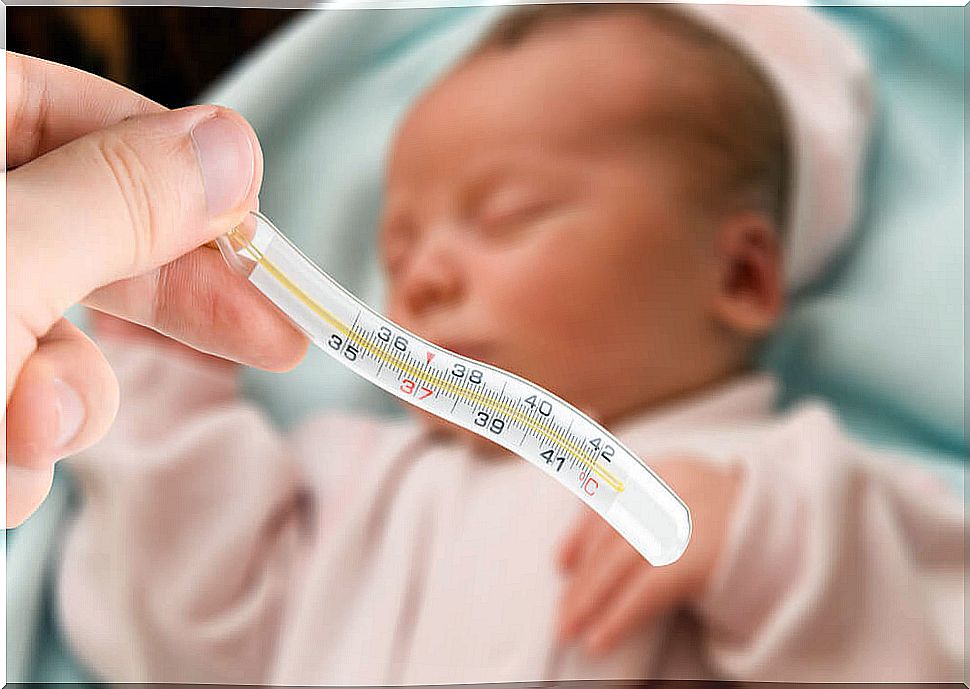
The most common triggers for this symptom are respiratory infections, such as colds and flu. However, it can be caused by something more careful, for example, a urinary or ear infection. In small cases the triggers are serious diseases.
How to know if the child has a fever?
Increased body temperature is the main feature of fever in children. However, because it often has underlying causes, it is often possible to identify other red flags. Symptoms may include the following:
- Notoriously flushed cheeks.
- Fast heartbeat or breathing.
- Feeling cold or chills
- Fatigue and weakness.
- Pale skin.
- Headaches.
- General malaise.
Is it necessary to treat fever in children?
Fever is always an indicator of some alteration in the body. For this reason, trying to control it with a medication can prevent the recognition of other key symptoms for the diagnosis.
The functions of this symptom are to protect, defend and accelerate the recovery process of children from infectious processes. So insisting on lowering the temperature can backfire.
Because of this, before trying any antipyretic or specific drug, it is advisable to follow other recommendations to keep the child calm and comfortable. Thus, by not interrupting the defense mechanisms, an optimal recovery occurs.
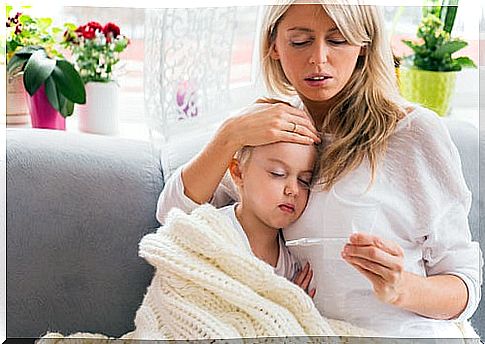
Note : the use of fever medications should be done under medical supervision. An adequate evaluation allows to determine if it is necessary to medicate.
Recommendations to act against fever in children
Although the general recommendation is to let the fever pass, it should not be overlooked that children feel unwell and require certain care. Poor symptom management can affect the risk of complications. So it’s best to apply the following tips provided by this KidsHealth information .
Give him a warm bath
For no reason should you try to lower the temperature with cold water or ice packs. Sudden drops in temperature are harmful and interfere with the functions of fever as a defense mechanism. However, a warm or lukewarm shower can promote a child’s well-being, although the relief is temporary.
Provide healthy fluids
The fever can be accompanied by excessive sweating and dehydration. For this reason, providing healthy fluids such as water, fresh juices or herbal teas can support the recovery process.
Ensuring a cool environment
One of the big mistakes when treating fever in children is overcoating them. Although it is normal to apply this measure in cases of colds, it is not the correct thing to do. To maintain the child’s comfort, the ideal is to put fresh clothes on him and keep him away from heat sources. The higher the temperature, the less warm it should be.
Use medications only if necessary
The use of antipyretics is only recommended when the symptom is accompanied by general malaise or pain. Often the drugs recommended by the pediatrician are ibuprofen and paracetamol for children. Doses vary depending on the age and weight of the child; therefore, it is always best to consult a healthcare professional.
Monitor the temperature
The thermometer is an essential tool to act against fever in children. This allows the temperature to be continuously monitored in case of complications. In case the levels reach more than 40 ºC, it is essential to see a doctor immediately.
Is your child going through an episode of recurrent or prolonged fever? It is better to try to find out its cause. Therefore, if after applying these recommendations you do not notice an improvement, request a consultation with the pediatrician to provide an adequate diagnosis and treatment for the child.
